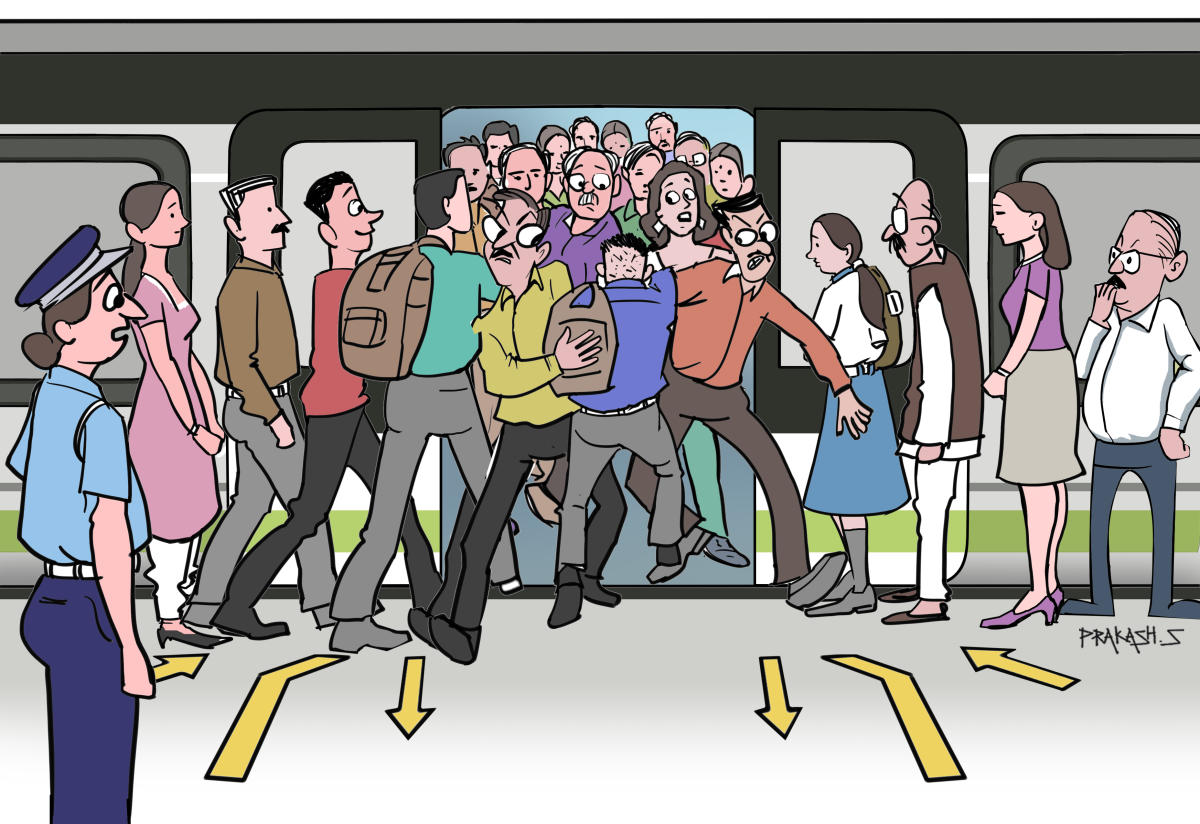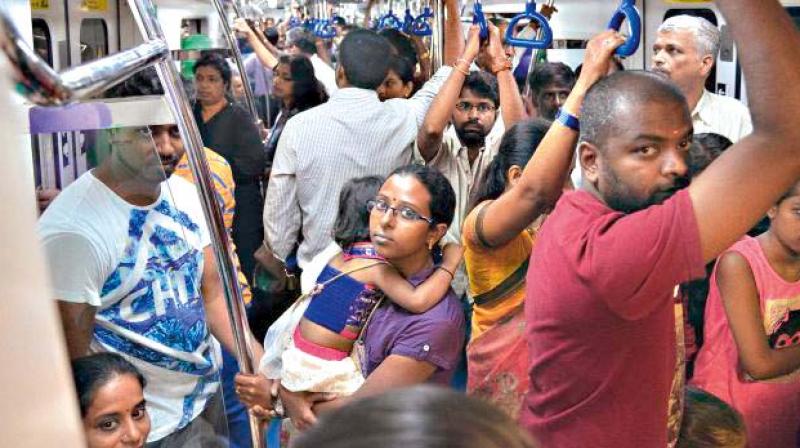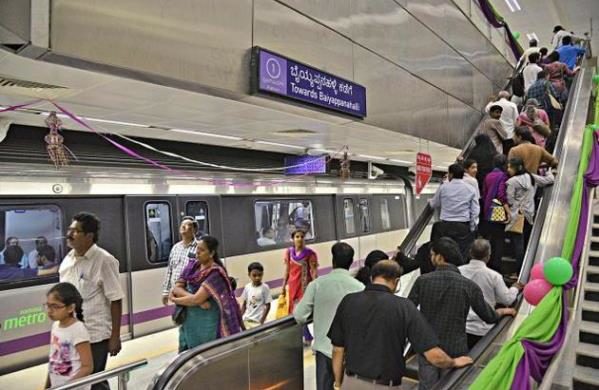
TELL TALE NAMMA METRO
Bangalore Metro Rail Corporation popularly known as “Namma Metro” has come as a lifeline to the traffic squabbles on city roads. BMRCL, a joint venture of the Government of India and the Government of Karnataka, is the first metro rail project in India commissioned with 750V DC third rail on standard gauge. Garden City's travel partner, “Namma Metro” provides cutting-edge, dependable alternative transport to the general public. This rapid transit system “Namma Metro” is serving the people of Bengaluru city from the year 2011 and expanding year after year. As per the reports, Namma Metro’s network will be extended from 56 km to 170 Km and its daily ridership is expected to increase to 17 lakhs by 2024 from the present 5.00 lakhs mark.

I have been using Namma Metro for quite some time and now I think of another mode of transport only when there is no Metro connectivity. A journey in the Namma Metro helps us to plan our daily schedules without any hiccups. We can reach our destination as per our plans. Which otherwise is not possible through any other modes of transport.


I have observed in Namma Metro that some persons after occupying a seat keep their bags next to them and ensure no one comes next to them. It may be right as part of the social distancing. But some youngsters are very clever they remove the bag when they see a girl looking for a seat. Some people stretch their legs beyond limits as if they are doing stretching exercises. This way they ensure that none tries to occupy a seat next to them.

Stride with purpose and shun lifts and elevators.
After alighting from the train there is a rush to use the lift and escalator at Namma Metro stations. Disabled, aged people or people with certain ailments using the elevator is justified. Young, hale and healthy people jousting to use the mechanical support is quite appalling. A little bit of physical exercise by climbing steps will help us to maintain our physical health and also ease mayhem in Namma Metro stations. We pay money and use our precious time by going to the gym, walking, etc to maintain our health condition. Why do not we make a habit of using steps wherever possible?
People particularly youngsters have lost the sense of civility. They do not extend any courtesy to offer a seat when they see an aged, or disabled person standing on the train. We cannot blame them because they do not see anything wrong with it. Rather they can’t see because they are so caught up with their gadgets.